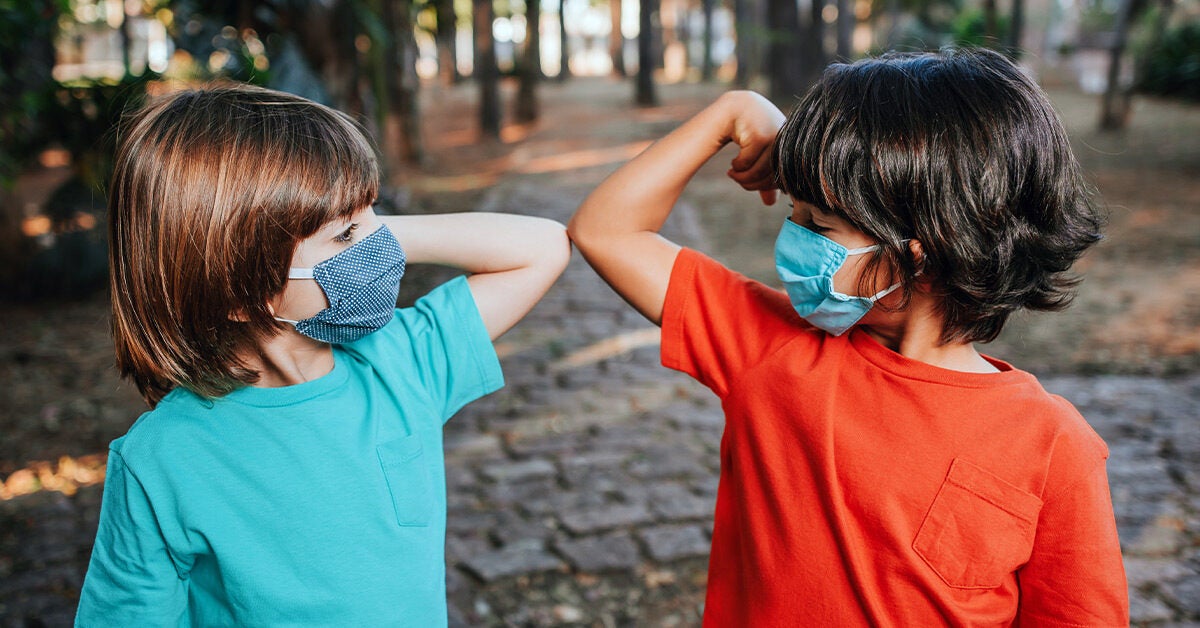
`Children's illness could be common virus: Experts
Don't Miss
PARAG BISWAS, SNS, SILIGURI, 15 SEPTEMBER 21 : Wayback in February 2001, a mysterious fever had claimed 49 lives in Siliguri, triggering panic among the residents here.
Laboratory investigations conducted by experts couldn't identify the infectious agent and doctors named it the "Siliguri mystery fever."
It was in the year 200S that the virus was identified as Nipah and the Siliguri outbreak was recognized as the first incident of the Nipah disease in India.
Twenty years later, a fever of unknown origin is gripping many children in Siliguri, Jalpaiguri and other parts of north Bengal, triggering confusion over a possible third wave of the Covid-19 pandemic, as children have not been vaccinated yet, and many experts and also the panel set up by the central government, in its latest report, has warned that a third wave of the pandemic could hit India anytime between September, and that children might be at similar risk as adults in the anticipated third wave.
Amidst growing apprehensions in the region that the third wave might have already hit children here, the Empowered Group-1 (EG-1) that deals with the country's Covid management plan, yesterday pointed out a steady in crease in the share of coronavirus cases in children below 10 years in the overall active cases.
However, experts in north Bengal today ruled out the possibility of a new strain of the coronavirus, which is capable of evading the prescribed Covid tests, affecting children here.
A senior professor of the Department of Biotechnology, University of North Bengal, Dr Ranadhir Chakraborty, who felt that the disease could have been caused by RSV (Respiratory Syncytial Virus), said that the virus causes infections of the lungs and the respiratory tract.
"RSV is a common respiratory virus, which infects most children by five years of age mostly between June and September every year. It affects the lungs and its bronchioles, that is, the smaller passageways that carry air to the lung.
"The virus first infects the nasopharynx and then seeps down to the bronchioles, leading to a heavy discharge of thick mucus, which causes coughing and wheezing. The symptoms of the disease caused by the virus are similar to those of the common cold and it mostly affects children of the low and lower-middle income group of people," he said.
According to Dr Chakraborty, both RSV and the coronavirus were RNA viruses, but that people should not panic as their basic characters were not similar.
"Both the viruses are single-stranded envelope viruses, but while RSV is negative-stranded, coronavirus is postive-stranded. The symptoms of the diseases caused by the two viruses and also their treatment protocols are the same. Since both Covid and RSV spread similarly, Covid appropriate behaviour should be strictly followed and people should ensure that their children wash their hands frequently and maintain sufficient distance from the infected kids.
'The patients of RSV should be isolated and adults should not smoke inside homes nowadays as it helps the spread of the virus. The guardians of premature babies and children suffering from congenital heart problems as well as Broncho pulmonary Dysplasia, Down's Syndrome and other spastic ailments need to be extra careful and, as suggested by the American Association of Pediatrics, parents of the infected kids should ensure that their children inhale bronchodilators and stay hydrated. In extreme cases, oxygen support may be required but that is very rare," said the renowned microbiologist.
He also suggested that the naso pharyngeal swab or nasal aspirate specimens of the infected children should be immediately tested for RSV.
A renowned child specialist of Siliguri, Dr Subol Dutta, who described the disease as "seasonal flu," urged parents and guardians of children in north Bengal not to panic and suggested that they visit a doctor as soon as the symptoms of the disease occur in their children.
"As a result of some predictions which have claimed that the third wave of covid-19 may affect children more, parents of children affected by the fewer have started panicking and running to hospitals. But this is a common viral infection, which is affecting many children mainly because of the fluctuating temperatures and rapid changes in weather patterns during the past few weeks. The parents of the infected children should not be worried about the fall in platelet and white blood cell count due to the infection. Viral infections commonly lead to a drop in platelet count as well as leukopenia or leukocytosis, that is, an increase or decrease in WBC counts," he said.
The senior pediatrician suggested that children affected by the disease should not be given antibiotics in the initial stages. 'The symptoms of seasonal flu subside in three to four days and the affected children should only be given antipyretics like paracetamol in the proportion of 10-15 mg per kg of body weight.
"They should drink plenty of fluids and take ORS (Oral Rehydration Solutions). But if the symptoms do not weaken in three to four days, then the affected child may have to be given antibiotics as the secondary infections caused by some opportunistic bacteria may lead to serious blood infections like septicemia in some cases," he cautioned.


0 Response to "`Children's illness could be common virus: Experts"
Post a Comment
Disclaimer Note:
The views expressed in the articles published here are solely those of the author and do not necessarily reflect the official policy, position, or perspective of Kalimpong News or KalimNews. Kalimpong News and KalimNews disclaim all liability for the published or posted articles, news, and information and assume no responsibility for the accuracy or validity of the content.
Kalimpong News is a non-profit online news platform managed by KalimNews and operated under the Kalimpong Press Club.
Comment Policy:
We encourage respectful and constructive discussions. Please ensure decency while commenting and register with your email ID to participate.
Note: only a member of this blog may post a comment.